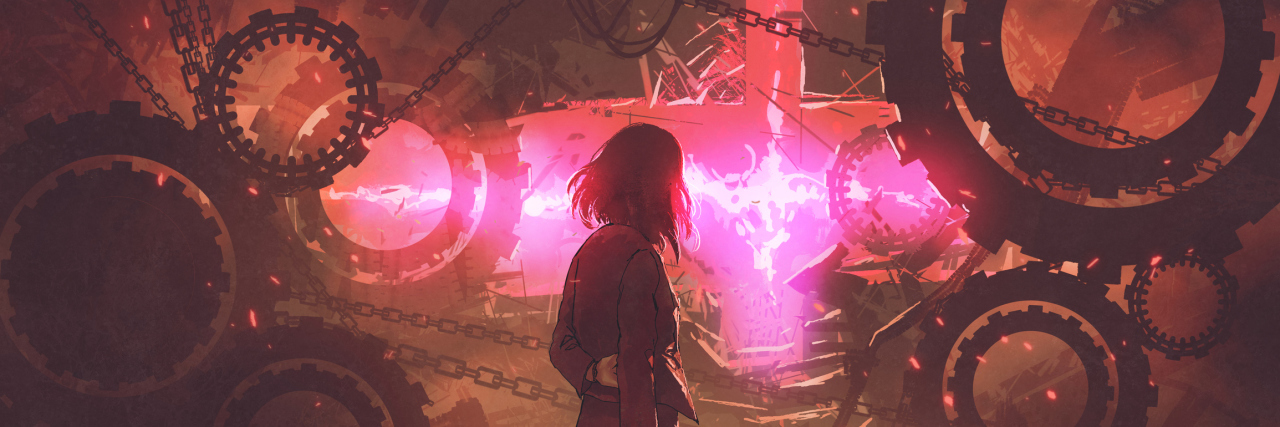When PTSD Becomes Your Personal Hell on Earth
Editor's Note
If you’ve experienced sexual abuse or assault, the following post could be potentially triggering. You can contact The National Sexual Assault Telephone Hotline at 1-800-656-4673.
So, I’m kind of in a bargaining mood today…
Here it is. PTSD is my very own version of hell that I do not deserve. I am atheist and do not believe in hell. But because of PTSD, I believe in hell on earth.
Tell me. Who deserves this?
I had a hard couple of days. I’ve been trying to avoid thoughts, but I failed. And these thoughts turned into flashbacks that are so severe that I am dissociated from where I am and who I am with.
Tell me. Is there a treatment? A cure?
Just a couple days ago, I was on the floor crying. Shaking. Sobbing. Wanting it all to end. I even contemplated suicide. But there are people who still need me here and a future I need to be present to ever see.
Tell me. Can I recover?
I felt I was being raped over and over again. It gave me fear and anxiety until the point where it was painful. My head was throbbing and my stomach was twisting and turning, I was convinced I was going to vomit any second. I felt alone and trapped in my own thoughts replaying over and over again like a scene playing on a scratched disk and it doesn’t have a pause button.
Tell me. I will do anything. Can you take this away from me?
I don’t know who I’m talking to. I don’t believe in God. But there must be a higher power. I need help. I need an escape as I thought this assault was a one-time thing. But no, I’ve been assaulted over and over again. Off and on for two years straight. Some days when I close my eyes, I see his face.
Tell me. What can I do?
Tell me.
PTSD is a serious condition that causes stress beyond any limit anyone can handle. People with it have their own experiences that affect them differently. If you know someone with PTSD, if they are in the middle of an episode. Keep an open ear out. Listen to their fears and struggles. But do not force them to tell anything they are not comfortable with. Just listening and supporting them can go a long way in their recovery. Thank you for reading.
Getty Images photo via Grandfailure

